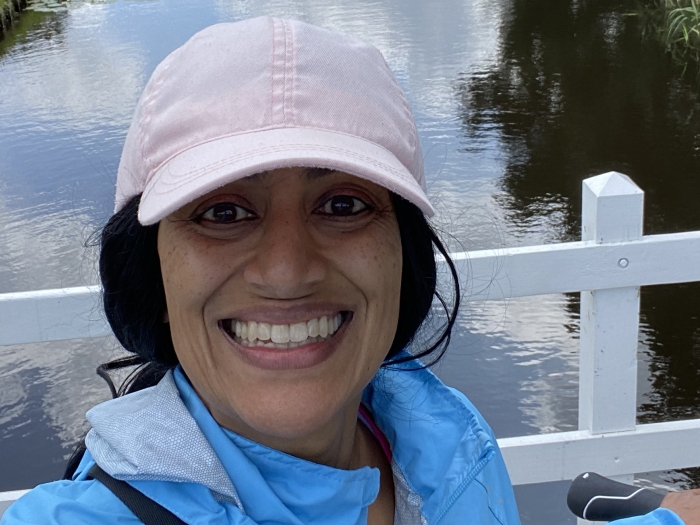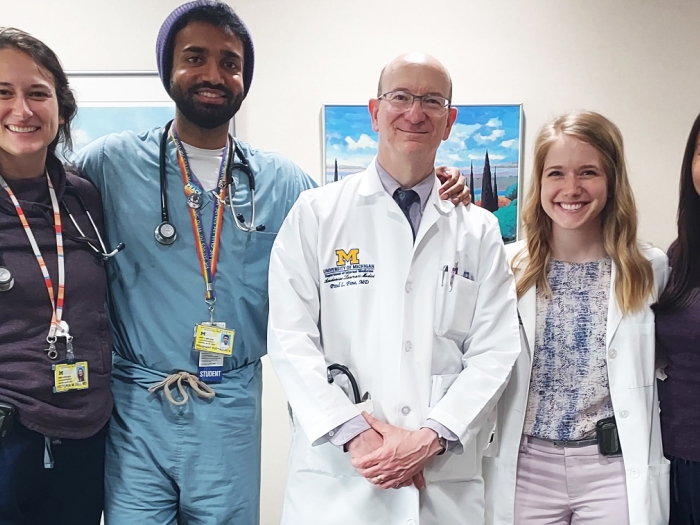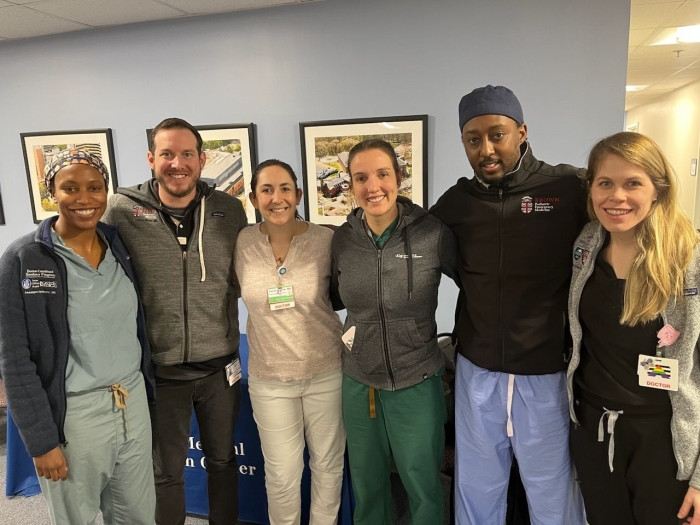There's something here for everyone, whether you've just arrived or you're a native Wolverine. Explore our countless campus and community resources and you'll see why Ann Arbor is an open, welcoming city beloved by so many.

What’s it like to move to Ann Arbor for the first time? Thirty percent of Michigan Medicine learners said their transition was seamless with no issues, with 39 percent reporting a few bumps in the road. Whether you’re focused on finding the best place to live to reduce your bus commute, or you’re curious about interest groups at U-M — or you just want some insider tips on uniquely Ann Arbor places to explore — this guide will help.
Everyone at Michigan Medicine is here with the goal of helping patients and making the world better, in ways big or small. Naturally everyone wants to do that in different ways, but the underlying goal is the same. I have connected with like-minded peers and with people who approach problems differently.”

With a large demand for rental housing and a higher-than-national-average rent, you’ll want to be strategic about finding a place to live in Ann Arbor. Michigan Medicine learners share the following advice and considerations:
- Start your search early. If you’re moving to town outside of the normal school-year leasing cycle, you may have fewer options. It wouldn’t be too soon to start looking in early spring for a fall lease, if possible.
- Familiarize yourself with the layout of the city, the location of grocery stores like Kroger, Meijer, Trader Joe’s, Whole Foods and Kerrytown Market & Shops, and the bus routes if you’re going to bus to campus (which is free!). If you’re going to be working late or odd hours on campus, pay attention to when certain bus routes stop running and plan accordingly.
- Get a good idea of your ideal price range, and be open to having a roommate if you’d like a bit more space — you may be able to get a larger 2-bedroom apartment for about the cost of a 1-bedroom.
- Consider the winter factor. A short walk or bus ride in warm weather can be colder or longer during the winter when it’s snowy.
- If you’re looking for something more affordable and with a bit of built-in community, consider a local housing co-op or, for med students, one of two medical societies. Nearby Ypsilanti, a 30-minute bus ride from Ann Arbor, is home to Eastern Michigan University and also has more affordable housing options and a tight-knit campus and downtown community with shops, cafes, and a food co-op.
- Build a network of current learners in your program to find current leases to take over or apartments going on the market. Many of the best places are passed down from one person to the next and may never get advertised. If you’re looking to rent a condo or a single-family home, check out local realty companies that often list properties that don’t appear on Craigslist.
- Know your trade-offs: More space? Lower cost? A garden or yard? Shorter commute? Allows pets? Know which options are your must-haves, and it will be easier to jump on a good opportunity.
- If you’d like to buy a home, be sure to check out both Ann Arbor and its surrounding communities, including Ypsilanti, Saline, Dexter, Brighton and Plymouth-Canton. The Ann Arbor market moves quickly, so find a realtor you click with so you can trust them to help you navigate the process.
At Michigan, we support a safe, just and peaceful community where you can connect and thrive. Visit our DE&I section for regional community groups and health resources.

Ann Arbor has a well-deserved reputation for being open and welcoming, and Michigan Medicine learners from other regions report that they’ve been pleasantly surprised at how friendly everyone is here.
Even so, you’ll be busy acclimating to a new place, a new program, and new colleagues — so how easy is it to make friends? According to current students and trainees, pretty easy!
With more than 1,600 student groups at U-M, 75 or so just in the Medical School, groups for PhD students, and an association for house officers and postdocs, you’ll find like-minded people with a common passion for making the world a better place. The Office for Health Equity & Inclusion and the Spectrum Center are also supportive avenues for finding your people.
Beyond campus, you can explore Meetup groups interested in entrepreneurship, technology, and adventuring.

Find family-friendly benefits, support groups and courses, childcare, and information on housing and job-hunting.
There are a lot of groups. Sometimes it feels daunting to start going to one if you don’t know anyone else. Luckily, most people in Ann Arbor are incredibly welcoming. Showing up is the hardest part.”


